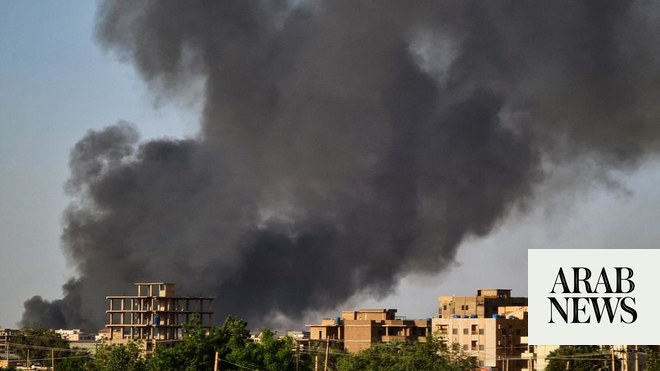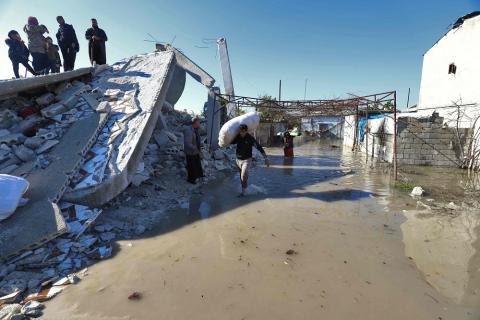
Saudi Arabia has always been quick to anticipate Jordan’s needs, and King Salman’s initiative to hold a quartet meeting (Saudi Arabia, the UAE, Kuwait and Jordan) is a case in point. The initiative appreciates the close connection between stability and economic conditions, and the need to have a thorough discussion between brothers and allies about Jordan’s economic and security challenges.
While some form of official assistance may be needed urgently to help the government meet International Monetary Fund (IMF) conditions, what Jordan especially needs is investment.
In 2011, the late Saudi King Abdullah took the initiative to invite Jordan to enter into a collective strategic partnership with the Gulf Cooperation Council (GCC) that included multidisciplinary engagement in all fields, and $5 billion in grants to be disbursed over five years. Those grants have largely been disbursed on worthwhile projects throughout Jordan, helping the government provide basic services.
What transpired from that engagement over the past several years was that Jordan needs investment to create jobs just as much, if not more, than it needs development assistance. In addition to job creation, investment alone can widen the tax base to generate additional revenue for the government. Investment can also build a sustainable economic base with multiplier effects in all aspects of economic, political and social life.
Jordan’s predicament today is the product of several intertwined challenges that have beset the country for decades, but have intensified since 2011 as the war in Syria has done. Until those circumstances change, Jordan will likely be in need of aid, but especially of ever-increasing levels of investment.
For a long time, Jordan has borne the brunt of regional crises. First, the Israeli-Palestinian conflict forced refugees to flee to Jordan, and their numbers have swelled to more than 2 million today, according to the UN.
While some form of official assistance may be needed urgently to help Jordan meet IMF conditions, what it especially needs is investment.
Abdel Aziz Aluwaisheg
Other waves of refugees came to Jordan: Following the Gulf War of 1990-91, the US invasion of Iraq in 2003, and since 2011 the Syrian crisis. Jordan estimates that it has about 1.5 million Syrian refugees, although only a fraction are registered as such by the UN.
Taking care of refugees is only one task facing Jordan. Maintaining national security and stability has been another daunting challenge. Jordan occupies an unenviable position between Syria, Iraq, Palestine and Israel.
Terrorist groups such as Al-Qaeda, Daesh, Hezbollah and others have also posed serious threats to Jordan’s security. The massive security threats divert significant resources from basic services, and reduce the government’s ability to deal with the day-to-day needs of the population and of refugees.
The presence of millions of refugees not only puts pressure on government resources, but also depresses wages and increases unemployment, which has been above 18 percent since the beginning of 2017. Jordan’s allies and partners have recognized its needs, and as such, it gets substantial aid from the GCC, the US and European donors.
In 2012, the GCC established a program for Jordan’s economic development, with $5 billion of grants over five years. Saudi Arabia has contributed about $2 billion to Jordan since 2011, about $750 million in excess of its share of the GCC program. The UAE has also contributed beyond its share. In addition, about 1 million Jordanians work in GCC countries and remit annually more than $2 billion to their families back home.
These large infusions of cash into the Jordanian economy are extremely beneficial, but they are not enough. In February 2018, the US announced $4.6 billion of aid to Jordan, including direct aid to Syrian refugees living there. Other donors have also contributed significantly.
While Jordan gets a fair share of foreign aid, investment flows have slowed down, in part because of the security risks I mentioned, but also because the World Bank has ranked the country rather low in the index of ease of doing business. It says Jordan needs to do more to attract foreign investment, and has identified several areas for potential improvement in the business environment, governance and transparency.
These are the common grievances voiced by GCC investors and others. To its credit, Jordan has owned up to these needs and has pledged improvements, which may account for the slight improvement this year in the World Bank rankings of Jordan.
Investor confidence is key because no amount of budget support or development aid can be sufficient to provide jobs in significant numbers. When the overall unemployment rate is above 18 percent and youth employment is nearly double that, massive development is needed, and for that you need the private sector. Private investors are usually very demanding and quite sensitive to political and economic risks.
Jordan’s new government is led by none other than Omar Al-Razzaz, a former ranking World Bank official quite familiar with the reforms the country needs to undertake to attract investors and donors alike: Transparency, a consistent legal environment and a speedy administrative process.
Investors, whether Jordanian or foreign, also need guarantees. Those guarantees can be provided by donors, the World Bank or by the government. They could also be arranged by private financial institutions. There are many options, and the new prime minister probably knows all of them.
Abdel Aziz Aluwaisheg is the Gulf Cooperation Council (GCC) assistant secretary-general for political affairs and negotiation, and a columnist for Arab News. The views expressed in this piece are personal and do not necessarily represent those of the GCC. Email: Aluwaisheg@gmail.com. Twitter: @abuhamad1











